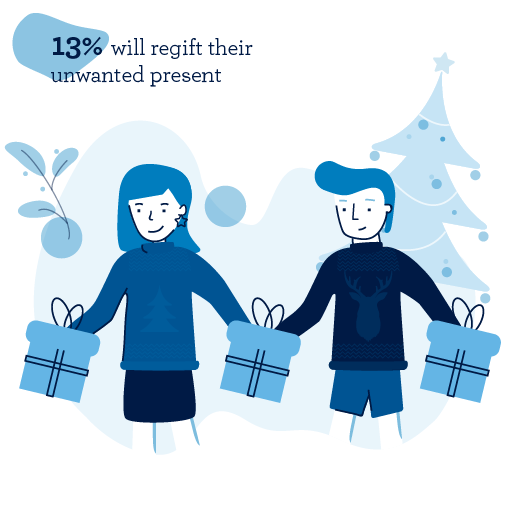How to avoid waste this Christmas
Embrace the spirit of Christmas by giving back to the environment this festive season.
If ever there is a time for excess, Christmas is it. But it’s important not to forget about the waste you create amidst all the good times, feasting, gifts and celebrations.
You’ve heard of the 12 days of Christmas, but here’s 12 ways to avoid waste this Christmas.
- Turning your house into a light display come the festive season is a great way to spread Christmas cheer, but also to use a lot of electricity. Consider solar-powered Christmas lights instead – our long summer days are perfect to charge them so your house can shine at night.
- Think green when it comes to your tree. Either invest in a top-quality fake tree which will last many years, or buy a real tree. If you do opt for a real tree, make sure you recycle it properly. Small trees can be cut up and recycled in your garden waste bin, while many councils schedule a special collection for larger Christmas trees.
- Buying cheap gifts that only last a short time can be great for the family budget but not so good for the environment. Instead look for well-made gifts, which will last and offer good value for money. To further minimise your footprint, give experiences rather than physical gifts.
- In a world where time is a priceless commodity, making – rather than buying – gifts can be a whole lot more meaningful and lead to less consumption. For another spin on this, give the gift of time – offer to do some free babysitting or to mow a friend’s lawn.
- When buying physical gifts, many stores now offer gift receipts, which enable the recipient to exchange the present without revealing the price. Providing you don’t get offended, it’s a win-win – your gift doesn’t end up in the landfill and your loved one gets something they truly want.
- Remember your e-footprint and try to avoid buying gifts that need batteries. If you do buy something that’s battery-operated, consider making rechargeable batteries and a charger part of the gift. Trust us, they’ll thank you.
- If you receive a gift you don’t like, consider whether you can upcycle it, or use it for another purpose. If that’s not possible, donate it to charity or consider re-gifting it, rather than throwing it out. Re-gifting may have a bad reputation but you can’t argue with its environmental credentials.
- Instead of opting for store-bought wrapping paper, make your own, use your kids’ drawings or dress up newspaper with festive ribbon. And when you’re done, consider recycling your wrapping or consider reusing it – you can refresh it by covering with a towel and ironing out the creases on low heat.
- Avoid unnecessary food waste by buying your food as fresh as possible so that it lasts longer and you throw less away. You can also reduce your food miles and carbon footprint by buying it locally.
- Buy food you like and will eat. It may seem like simple advice but as Christmas is associated with many traditional dishes, who hasn’t served up a plum pudding when everyone would have rather had a pavlova? Or if you and your guests aren’t big turkey fans, avoid the food waste and go for chicken instead. The only rule of Christmas should be to enjoy!
- There are numerous blogposts and articles dedicated to creative ways to use up Christmas leftovers. And when you reach the point that you just can’t consume any more ham or turkey, instead of throwing it away, freeze the rest and use it when the memory of Christmas has faded a bit.
- When catering for a crowd, it can be tempting to opt for disposable plates and cutlery to save time on cleaning up. But for the environment’s sake, use crockery and get everyone to pitch in with the washing up instead. And remember to recycle your glass bottles that were once full of Christmas cheer!
Merry Christmas!


